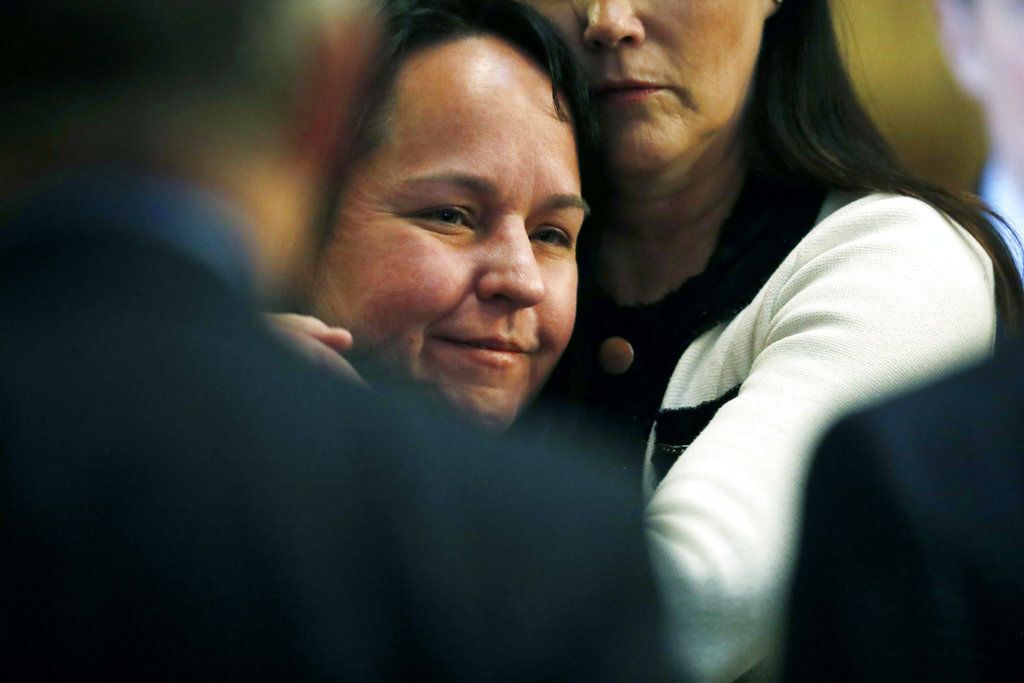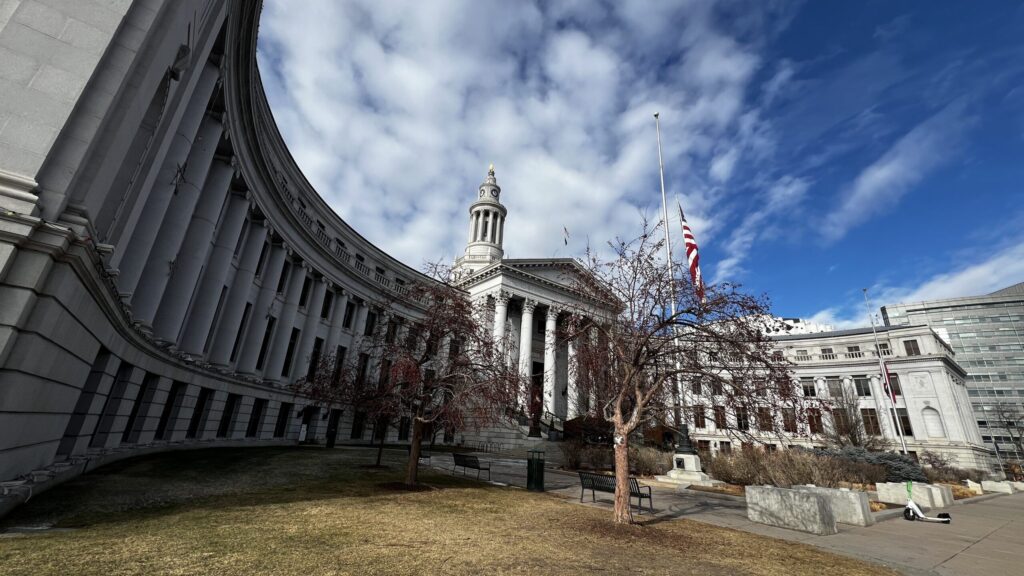Aurora becomes first city in Colorado to ban no-knock warrants

Elected leaders in Aurora on Monday voted to ban “no knock” raids by police.
Aurora becomes one of several cities that revised their police policies on raids in the wake of the slaying of Breonna Taylor in Kentucky earlier this year. It is believed to be the first Colorado city to take such an action.
The City Council voted 7-3 to prohibit law enforcement from entering a property by force without identifying themselves before entry, according to a report from the Associated Press.
Throughout this year, the Aurora Police Department has been changing their policies and practices as a result of protests in response to police brutality. In June, the department prohibited the use of carotid pressure holds.
Faith Goodrich, the public information officer for the Aurora Police Department, said that the department has used ‘no knock’ warrants sparingly. Only five such raids have been performed since 2018, she said.
THE AURORA EVOLUTION | Colorado's third-largest city has changed its political stripes
Goodrich specified that 10 “no knock” warrants had been issued since 2018, but that half of the situations played out differently.
“It’s not a tactic that we used often,” Goodrich said. “It was only usually done in cases if there was a suspect who was dealing drugs, or committed a murder and we have information that they have access to weapons, or made statements about they’d never go back to prison and rather shoot it out.
“The idea of a ‘no-knock’ is to get there so fast, that they don’t have the time to arm themselves, and get them into custody safely.”
The ACLU of Colorado has consistently raised concerns about ‘no-knock’ warrants and the dangers the pose to occupants and law enforcement.
The danger is enhanced because Colorado is a state where a “Make My Day” law makes it legal for homeowners to shoot and kill an intruder in self-defense, if they believe someone intends to commit a crime and use physical force.
Officials from the Aurora Police Department acknowledged the dangers posed by each “no-knock” warrant and said that is the driving factor in why they were not used more frequently.
“We know they are higher risks, the courts know they are higher risk … as you can see in our statistics (we only followed through with half of the ‘no-knock warrants granted), but if we can do it another way, we will try and do that,” Goodrich said.
At-large councilwoman Angela Lawson introduced the measure on Monday evening. She told The Denver Gazette she was moved to take action after the death of Taylor, who was shot and killed by police in Kentucky during a ‘no-knock’ police raid in March.
“Although there is debate on the warrant issues surrounding Breonna Taylor’s death, I was moved to take action to prevent a tragedy like this from happening in our community. This is one of many policies that I’m leading which include youth violence prevention, policing and racial disparities and criminal justice reform in the city of Aurora,” Lawson said in an email statement.
Councilman Dave Gruber opposed the motion and argued that the city continues to make changes to policing while crime throughout the city is on the rise.
“The pendulum has swung so far to one side that crime is going up and arrests are going down,” Gruber said.
According to data provided by the city, major violent crimes like murder, assault and sexual assault have increased by 25% this year when compared to last. But arrests have dropped 35%, the AP reported.
Goodrich declined to comment about the banning of “no-knocks.” The department plans to release a statement at a later date. Attempts to reach the Aurora Police Association on Tuesday was unsuccessful.













